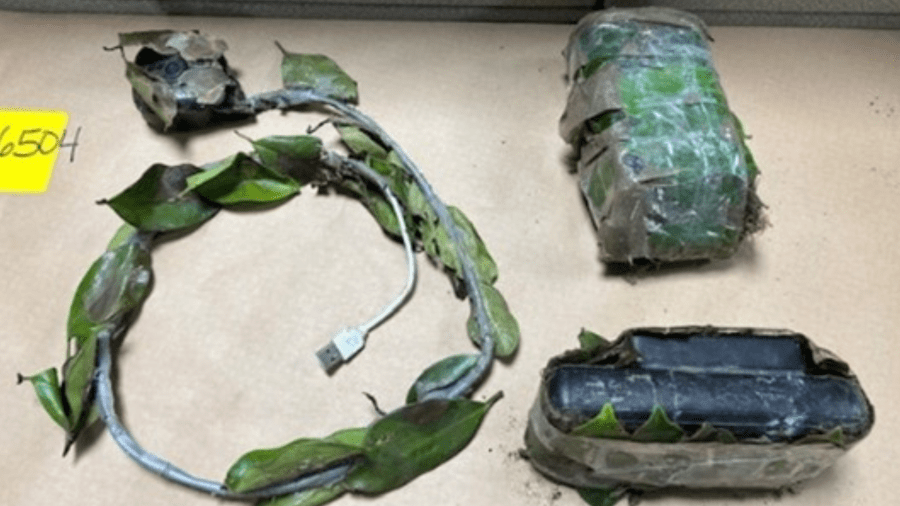A Japanese court ruled Thursday that an 88-year-old man was not guilty in a retrial for a 1966 quadruple murder, reversing an earlier decision that made him the world’s longest-serving death row inmate.
Originally convicted in 1968, Iwao Hakamada was released 10 years ago to await his retrial
The Associated Press
·

A Japanese court ruled Thursday that an 88-year-old man was not guilty in a retrial for a 1966 quadruple murder, reversing an earlier decision that made him the world’s longest-serving death row inmate.
Iwao Hakamada’s acquittal by the Shizuoka District Court makes him the fifth death row convict to be found not guilty in a retrial in postwar Japanese criminal justice. The case could rekindle a debate around abolishing the death penalty in Japan.
The court’s presiding judge, Koshi Kunii, said the court acknowledged multiple fabrications of evidence and that Hakamada was not the culprit, Hakamada’s lawyer said.
After the two-hour full explanation of the ruling that followed the main sentencing, his 91-year-old sister Hideko Hakamada walked out of the courthouse with a big smile, welcomed by a burst of cheers and two big bouquets to celebrate the acquittal of her brother after the 58-year legal battle.
“Thank you very much for supporting us for such a long time,” she said.
Hakamada was convicted of murder in the 1966 killing of a company manager and three of his family members, and setting a fire to their central Japan home. He was sentenced to death in 1968, but was not executed due to lengthy appeals and the retrial process in Japan’s notoriously slow-paced criminal justice system where prosecutors have a 99 per cent conviction rate.
He spent 48 years behind bars — more than 45 of them on death row — making him the world’s longest-serving death row inmate, according to the Amnesty International.
“After enduring almost half a century of wrongful imprisonment and a further 10 years waiting for his retrial, this verdict is an important recognition of the profound injustice he endured for most of his life,” Amnesty said in a statement.
Struggle adjusting to life outside of prison
It took 27 years for the top court to deny his first appeal for retrial. His second appeal for a retrial was filed in 2008 by his sister. Hakamada was released from prison in 2014 when a court ordered a retrial based on evidence suggesting his conviction was based on fabricated accusations by investigators.
He was allowed to await retrial at home because his frail health and age made him a low risk for escape.
“I have nothing to do with the case — I am innocent,” he wrote in his letter to his mother while on trial in 1967. He apologized for troubling the family and relatives, but expressed confidence in proving his innocence.
Supporters say Hakamada’s nearly half-century detention took a toll on his mental health. The first two months after Hakamada’s release, he kept pacing around inside the apartment, without even trying to go outside, his sister said. Most of his 48 years behind bars was spent in solitary confinement, in fear of execution.
One day, Hakamada’s sister asked him to help her with groceries to get him to agree to leave the house. Going out for a walk then became his daily routine, though today he is less able and he goes out by car, assisted by his supporters.
At a final hearing at the Shizuoka court in May before Thursday’s decision, prosecutors again demanded the death penalty, triggering criticism from rights groups that prosecutors were trying to prolong the trial.
The extremely high hurdles for retrials have also prompted legal experts to call for a revision to the system.
During the investigation that followed his arrest, Hakamada initially denied the accusations, then confessed. He later said he was forced to confess under violent, dayslong interrogation by police.
Judge rejects blood evidence
A major point of contention was five pieces of blood-stained clothing that investigators claimed Hakamada wore during the crime and hid in a tank of fermented soybean paste, or miso. The clothes were found more than a year after his arrest.
A Tokyo High Court ruling in 2023 acknowledged scientific experiments that clothing soaked in miso for more than a year turns too dark for bloodstains to be spotted, noting a possible fabrication by investigators.

Defence lawyers and earlier retrial decisions said the blood samples did not match Hakamada’s DNA, and trousers that prosecutors submitted as evidence were too small for Hakamada and did not fit when he tried them on.
On Thursday, the Shizuoka court judge concluded that clothing soaked in miso for more than a year would never show red blood stains, upholding the experiments submitted by the defence lawyers and calling it an “inhumane investigation” that led to forced confessions.
Hakamada was said to have worked in manufacturing after a career as a professional boxer that ended in 1961.
Japan and the United States are the only two countries among G7 nations that retain capital punishment. A survey by the Japanese government showed an overwhelming majority of the public support executions.
Executions are carried out in secrecy in Japan and prisoners are not informed of their fate until the morning they are hanged.
Note: This article have been indexed to our site. We do not claim legitimacy, ownership or copyright of any of the content above. To see the article at original source Click Here













